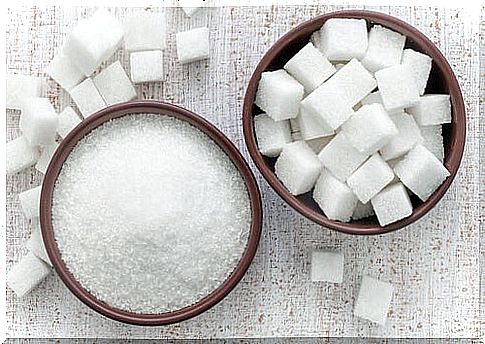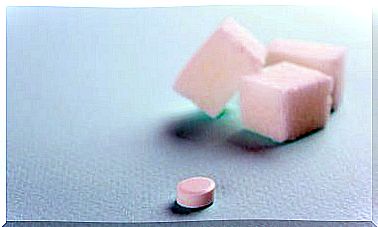5 Keys To Reducing Inflammation
Did you know that irregular sleeping patterns can lead to health problems as a result of inflammation in the body? It is important to sleep a minimum of 7 or 8 hours a day

In recent years and thanks to advances in medicine, doctors and scientists have been able to determine that most chronic diseases coincide in an excess of inflammation. It can occur chronically due to infections that do not go away, by abnormal immune reactions to normal tissues or by conditions such as obesity. Over time it can cause DNA damage and lead to cancer. In this article we present you 5 keys to reduce inflammation.
What is inflammation?
Under normal conditions, inflammation is a biological process that supports the body’s response against dangerous agents such as bacteria, viruses, and damaged cells. The problem arises when such a mechanism undergoes an alteration, having an overstimulation that is harmful to the body by hindering the natural healing process.
Can you do something about it? Yes of course. Bearing in mind that the origin of excess inflammation in the body is largely due to poor diet and other unhealthy habits, it is possible to stop and reverse it taking into account some health keys. This time we present you 5 basic strategies to reduce inflammation of the body and improve health in general.
Keys to reducing inflammation
1. Reduce sugar intake
Most people consume large amounts of sugar in their diet without being aware of the damage they are doing to their immune systems. Refined sugar, as well as that found in soft drinks, sodas and sweets, are the worst cause of alterations in the body’s inflammation mechanism.

How to avoid it?
Look for healthy alternatives to commercial soft drinks, for example, made from aromatic or fruity waters. This is especially important in the case of children.
2. Eat more alkaline foods
It is not about making strict dietary changes. The key to fighting inflammation through diet is to keep in mind that more foods with alkaline properties have to be consumed and those poor in nutrients and rich in acids have to be displaced.
Alkalizing foods help regulate the natural pH of the blood and thereby improve the functioning of all vital organs. In contrast, acidic diets cause serious alterations in all systems.

How to avoid it?
Minimize foods such as, among others:
- Coffee
- Sugar
- Processed grains
- Canned
- Sausages
- Refined flours
- Red meat
- Dairy products
And instead, increase your consumption of:
- Green leafy vegetables and other vegetables
- Herbs
- Green Tea
- Apple vinager
- Fruit
3. Sleep well
The lack of hours of sleep generates a physical and emotional tension that disturbs the natural inflammation process of the body. During sleep the organs perform repair tasks together with the nervous system, responsible for emotional states. The bad habit of staying up late or sleeping less than 8 hours a day can, in the medium and long term, cause health problems as a result of inflammation.
How to avoid it?
- Monitor your sleep patterns and try to sleep for 7-8 hours without interruption
- Avoid using electronic devices for at least 1 hour before going to bed and having a light dinner
4. Exercise
One of the most effective ways to regulate inflammatory processes in the body is through regular exercise. These types of activities warm up and strengthen the muscles, remove fluid retention, stimulate the elimination of toxins and remove those obstacles that prevent the proper functioning of the vital organs and systems of the body.

What should you do?
Just 30 minutes of exercise a day is enough to reduce inflammation that causes problems like arthritis and cardiovascular disease.
5. Eat more healthy fats
To a certain extent, the body requires fat for its organs to work in optimal condition and it is the healthy type that can help you. Healthy fats? That’s how it is. Although the word fat is already stigmatized as harmful to the body, the truth is that there are some healthy ones that should be included in all eating plans.
Where can they be found?
Some sources of essential fatty acids are:
- Blue Fish
- Chia seeds
- Flax seeds
- Olive oil
- Nuts
- Avocado









